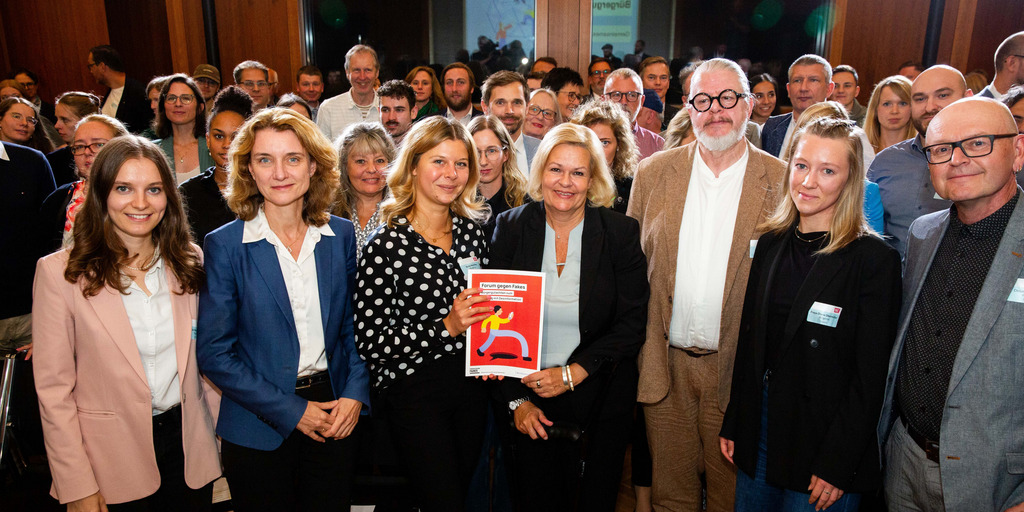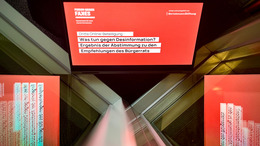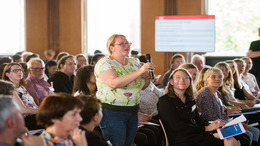Democracies are coming under increasing pressure through disinformation. Bertelsmann Stiftung created the project "Forum against Fakes – Together for a strong democracy" to counteract this development. The aim of the project, which is being conducted in collaboration with the Federal Ministry of the Interior and Community (BMI), the Mercator Foundation and the Michael Otto Foundation for Sustainability, is to spark a broad public debate on disinformation and promote democratic dialogue by means of new, innovative forms of citizen participation. Today, some of the citizens involved in the project have been invited by the BMI to a discussion with Federal Minister of the Interior Nancy Faeser on how to handle disinformation, when they will also submit a Citizens' Report containing their concrete proposals.
Bertelsmann Stiftung Executive Board member Daniela Schwarzer says: "The fact that so many people from all over Germany took part proves that disinformation is perceived as a serious problem which requires a concerted effort to tackle it. The recommendations by the Citizens' Assembly enjoyed a high level of acceptance in the Germany-wide online consultation. This shows how seriously the problem of disinformation is taken. And it also shows the value of stepping up to protect our society and our values."
According to Federal Minister of the Interior Nancy Faeser, "Measures to combat disinformation are nothing less than measures to protect our democracy. Foreign states, particularly Russia, use disinformation and propaganda as a means of undermining the public’s trust in our democratic system and its institutions. The internet contains countless false reports, manipulated images and misleading video clips. The idea behind 'Forum against Fakes' is to help people to recognise disinformation more easily, rather than falling for it. I want to thank Bertelsmann Stiftung for setting up this important and successful project. Around 424,000 participants from all over Germany took the opportunity to stand up for the protection of our democracy. My thanks to all involved for their voluntary commitment to this cause. We will now evaluate the recommendations to determine how far they can be integrated into the ongoing work of the BMI related to this topic".
Between January and July 2024, about 424,000 participants submitted their opinions and suggestions via an online platform. They created more than 3,300 proposals on how to combat disinformation on the internet. On this basis, a Citizens' Assembly with over 120 participants from all over Germany discussed the most important points and – supported by information from experts – created recommendations on how to deal with disinformation. Members of the Citizens' Assembly met several times in person and online to develop ideas, discuss measures and put together recommendations for action.




![[Translate to English:] Damen diskutieren in der Runde](/fileadmin/files/_processed_/a/e/csm_12.9.2024_FGF_Buergergutachten-9392_02_31859ecb97.jpg)





